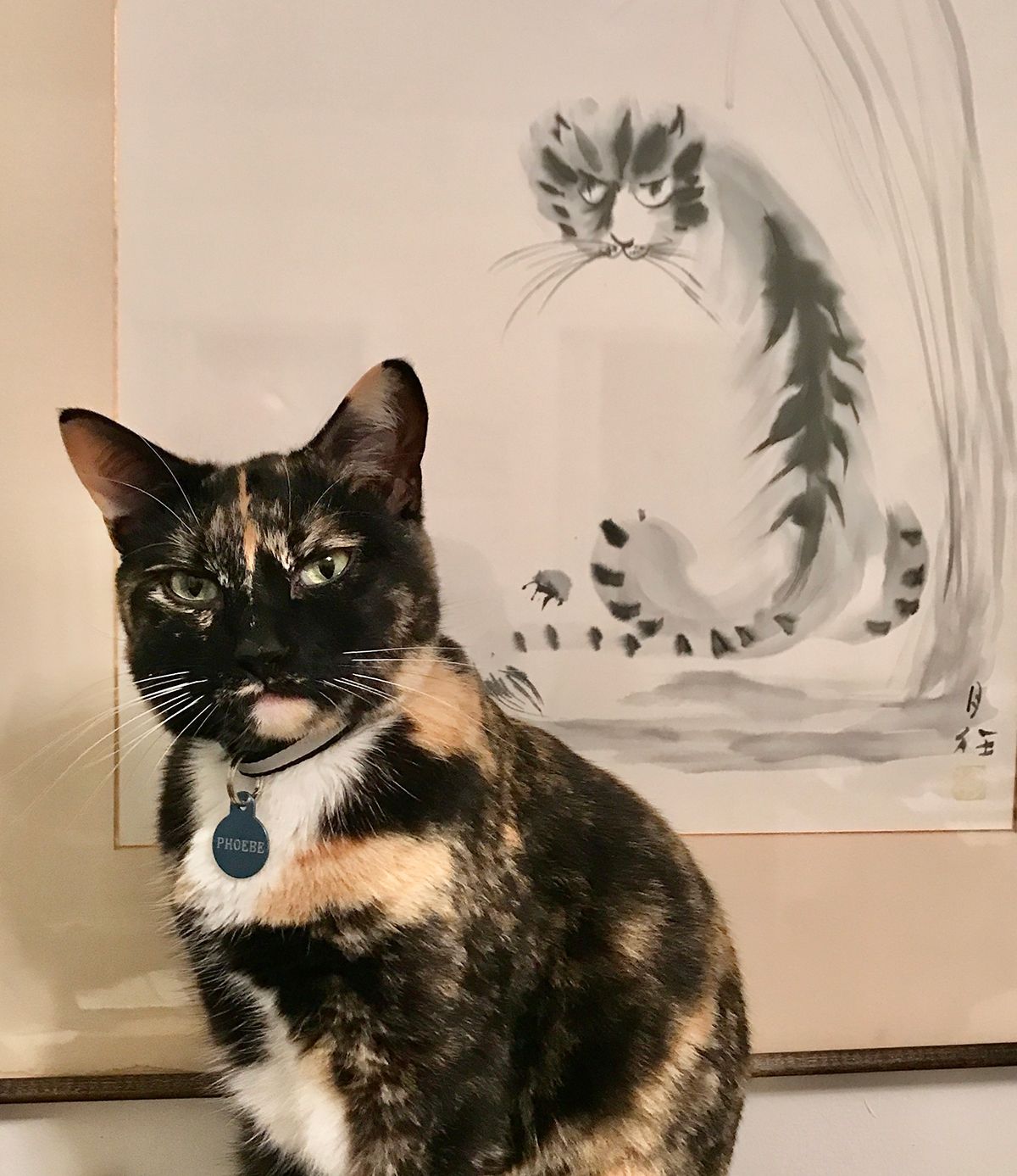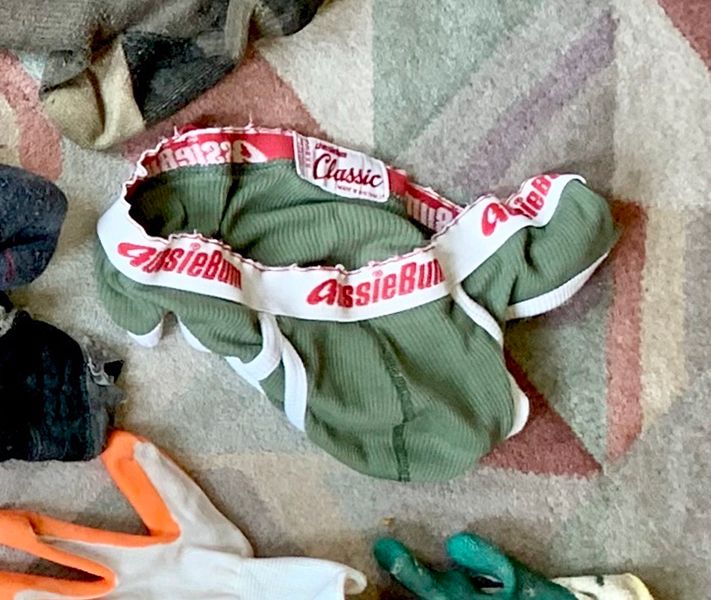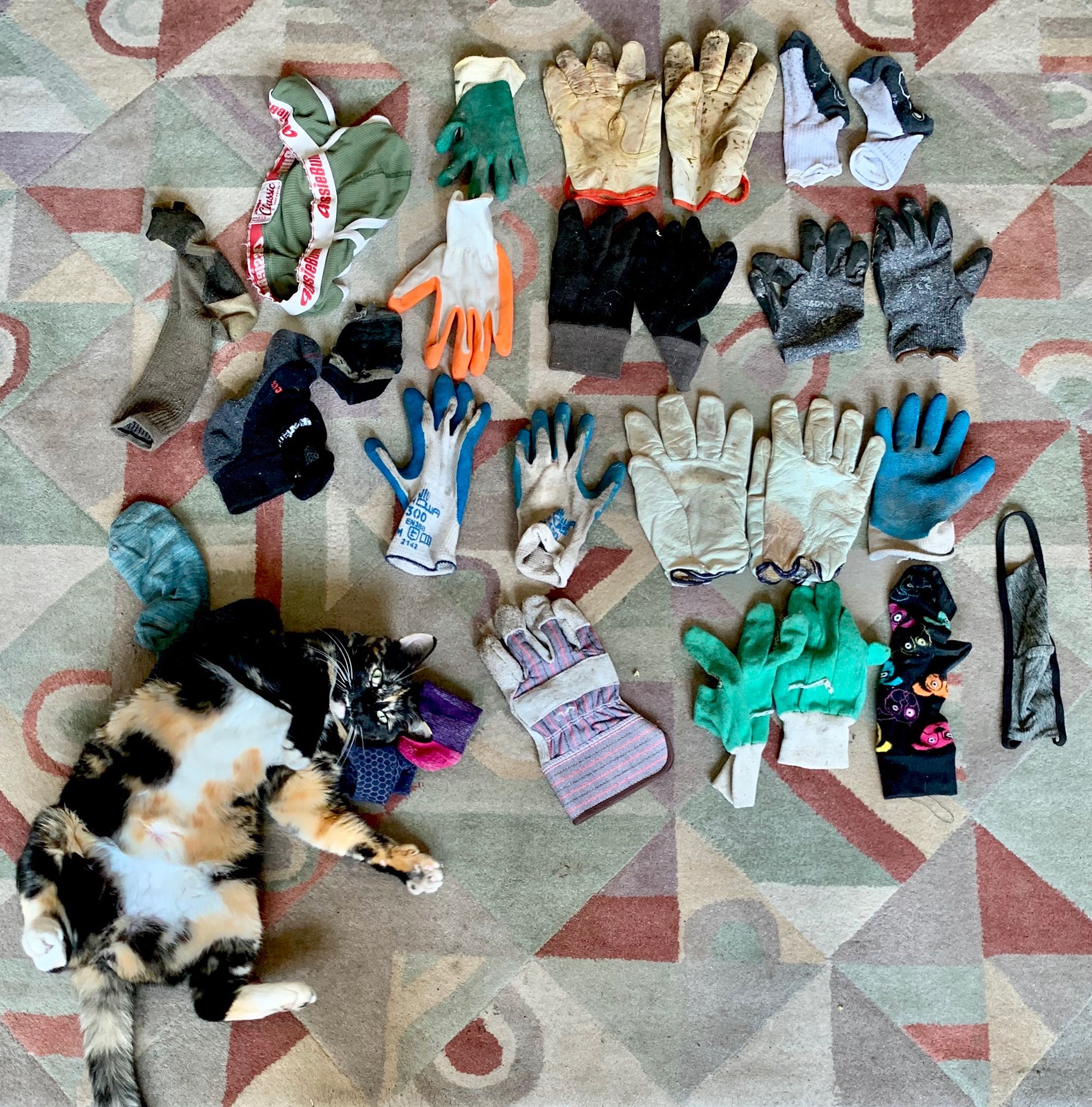Prolific cat burglar prowls North Oakland block
"By the time I realized what was going on, she had made off with my underpants," one UC student said.

By Chris Grampp
She started small; most thieves do: A sock. Then two. One glove and then a matched pair. Then Covid masks. Scarves. And underwear.
Anything on front porches and in driveways, yards and homes that wasn’t pinned down, and some things that were.
The thefts on the short North Oakland block, a stone’s throw from Berkeley, grew and grew and soon the neighbors were talking.
"She came in through my bedroom window at 3 a.m. and started rummaging through my dresser," said UC student David. "By the time I realized what was going on, she had made off with my underpants."
Statistics show that burglaries are on the uptick.
But this was no ordinary case: The perpetrator was a tortoiseshell cat, Phoebe, whose acquisitive ambitions were far bigger than her slight nine-pound frame.
Phoebe’s owners, who asked this writer to call them "Chris" and "Nina," recall when it started.
One morning they awoke to find Phoebe had deposited 14 socks outside their bedroom from a pile of clean laundry in the next room.
The socks and laundry were quickly folded and put away, but Phoebe had begun setting her sights on bigger quarry.
"Soon she began to wake us up at night with loud, deep howls, and we’d find all sorts of things in our hallway belonging to our neighbors," Nina said. "Matching gardening gloves, cloth face masks, baby socks, scarves, and yes, David’s pair of Aussiebum underpants."


From left: Phoebe's booking photo; the reappearing Aussiebum underpants. Chris Grampp
There was more: rubber bands, string and her brother Dexter’s collars, which kept getting torn off in nighttime scuffles with other cats.
And rodents, one of which escaped Phoebe’s grasp and took up residence in the refrigerator and stove insulation, necessitating the replacement of both appliances.
What drives a kitty to steal? Feline behaviorist Claude Davenport is no stranger to such thievery.
"For human beings, kleptomania is based on compulsion rather than need. But for cats, it’s clearly the hunting instinct," he said. "These objects not only fit into a cat’s mouth, they’re soft and have a human smell, and the gloves have appendages that look like little animal legs. Phoebe is trying to teach her owners to hunt, and failing that, bring them dinner."
Nina and Chris tried to return Phoebe’s larcenous bounty to the neighbors, but most didn’t even know anything was missing.
Neighbor Cheri barely recognized her own gloves.
"I haven’t seen those gloves for years," she said. "I have no idea where Phoebe even found them."
A week after David retrieved his underpants they were back in Chris and Nina’s hallway. The loot was piling up quicker than they could give it back.

Fast running out of options, Chris and Nina laid Phoebe’s collection out on a tarp in their front yard and invited people on the block to stop by and reclaim their stolen goods.
"It’s a great way to meet our neighbors," Nina said as people picked through the stolen items. But alas, Phoebe brought most of it back within a week or two.
Chris and Nina finally settled on posting photos of the stolen items on their block’s email list, but not without unintended consequences.
A neighbor’s Tabby at the other end of the block got wind of Phoebe’s antics and started stealing gloves herself, a classic instance of a "copycat" crime.
Chris and Nina are now considering starting a special online publication called "The Cat Scanner" to help people reclaim their possessions.
Chris Grampp teaches Landscape Architecture at Merritt College and has been seen playing guitar at Bay Area venues for years. He also likes detective novels. This story is true, except he made up the character Claude Davenport.
TBS is open to periodic pitches that highlight community voices.
Help The Scanner reach its goal of getting to 1,200 members in November. Support timely, accurate public safety news for you and your neighbors by signing up now.




